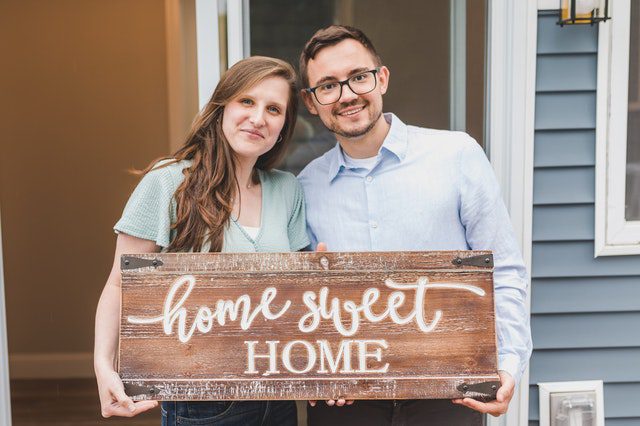As a first-time homebuyer when you take the first step on the property ladder, you are bound to be uncertain about several aspects of owning a home. Making these mistakes, warns Dawson Property Management experts when you are making what will probably be one of the biggest purchasing decisions of your life, could prove costly.
The problem with making these mistakes is that you could end up trapped in a deal or a property that is not right for you or will cost you dearly to get out of the situation.
One of the smartest moves you can make when considering buying a home is to understand the importance of independent building inspections to know exactly what state your potential new home is in and what it is really worth.
This is just one of the steps you can take to help avoid the typical traps a first-time homebuyer can fall into without a bit of knowledge to help them navigate issues that could prove costly.
Here is a look at some of the classic traps that easily snare you when you buy a home for the first time.
Table of Contents
Knowledge is power
One of the worst things you can do as a first-time homebuyer is to pay over the odds of buying the house.
It can be so easy to get carried away and bid blind, especially if you have fallen in love with the place. It is very hard to determine if the seller is asking too much and how it compares to other similar properties in the area.
Getting a mortgage valuation is required if you are narrowing money to buy the property. Still, the information in these reports is often limited to what the house is worth rather than listing its potential faults unless they are major ones.
Getting an independent building inspection is usually money well spent as it tells you exactly what you are getting into. It can also help you negotiate a fair price if some issues need to be put right.
Think about your present and future needs
Moving up the ladder is something most people do as their needs change, such as starting a family and wanting more space.
However, it makes sense to buy the right home every time. Think about every aspect of living at your chosen property. Ask questions such as how easy is it to commute from there?
Write down all of your present and future needs to find a property that ticks as many boxes as possible in your price bracket.
The right amount of deposit
It can be tempting to try and do a deal with a minimal deposit, but that could be an expensive mistake.
Ideally, you want to try and put a 20% deposit into your property. This percentage normally gives you access to better lending rates and helps avoid expensive premiums such as mortgage insurance. (This is when the lender is insuring the risk of a default, which you have to pay for)
It is often better to buy a cheaper home with a bigger deposit to avoid paying too much interest and higher associated purchasing costs.
Get your finances in order before you apply for a mortgage
Another top tip would be to check your credit score and take steps to boost your score as best as possible before you apply for a mortgage to buy your home.
The interest rate you are charged for your mortgage is based on risk, and if you can demonstrate a higher score and fiscal responsibility, you will usually be rewarded with a cheaper mortgage deal.
The difference between just 0.5% extra interest can significantly affect how much your payback.
Get your mortgage approved before you search for a home
It is much better and easier to have a mortgage offer agreed upon before you start shopping around for the right home.
Sellers will take you more seriously when you can confirm you can proceed with the purchase, and you will be much clearer on exactly what you can afford.

Check for hidden costs
The home buying process almost always involves some unexpected and hidden costs, which can quickly trap you into taking on more debt than you are comfortable with or can afford.
Be sure to identify all of your buying costs as early as possible. This includes transaction fees, broker fees for arranging the mortgage, and lender fees.
If you don’t have these calculated beforehand, you might have to put them on a credit card, which would be an expensive mistake.
Be wary of unclear title
You can’t be expected to understand all of the legal technicalities that your lawyer will handle as part of the homebuying process.
However, one thing to ask at an early stage is to check that your proposed new home is free and clear. They can verify this information by doing a title search.
Issues such as undisclosed owners, lease terms, and other potential issues are things you need to know early as they can make buying more complicated and expensive.
Unclear title issues can also potentially make it harder to sell your home later.
Agree on a list of resolutions to identified issues
If the home survey has identified some issues, for instance, you will want to set a time limit on how long you are prepared to wait for the seller to fix any problems that have been identified.
Preparing a list of issues to be resolved and putting a timeline on them will help you avoid stressful and expensive contract delays.
Shop around for the best mortgage deal
Last but not least, the first mortgage deal you get offered might not be the best one for your circumstances.
As already outlined, it is good to confirm that you can get a mortgage offer. However, once you have found the right property, make sure you sign up for the best terms and rates available for your circumstances.
If you can tick the check box on all of these highlighted items, you stand a better chance of falling into the expensive traps that can soon strain your finances, especially as a first-time homebuyer.
Featured Photo by RODNAE Productions from Pexels




